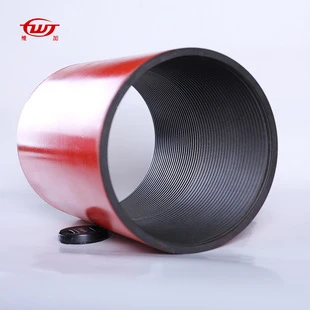- Afrikaans
- Albanian
- Amharic
- Arabic
- Armenian
- Azerbaijani
- Basque
- Belarusian
- Bengali
- Bosnian
- Bulgarian
- Catalan
- Cebuano
- Corsican
- Croatian
- Czech
- Danish
- Dutch
- English
- Esperanto
- Estonian
- Finnish
- French
- Frisian
- Galician
- Georgian
- German
- Greek
- Gujarati
- Haitian Creole
- hausa
- hawaiian
- Hebrew
- Hindi
- Miao
- Hungarian
- Icelandic
- igbo
- Indonesian
- irish
- Italian
- Japanese
- Javanese
- Kannada
- kazakh
- Khmer
- Rwandese
- Korean
- Kurdish
- Kyrgyz
- Lao
- Latin
- Latvian
- Lithuanian
- Luxembourgish
- Macedonian
- Malgashi
- Malay
- Malayalam
- Maltese
- Maori
- Marathi
- Mongolian
- Myanmar
- Nepali
- Norwegian
- Norwegian
- Occitan
- Pashto
- Persian
- Polish
- Portuguese
- Punjabi
- Romanian
- Russian
- Samoan
- Scottish Gaelic
- Serbian
- Sesotho
- Shona
- Sindhi
- Sinhala
- Slovak
- Slovenian
- Somali
- Spanish
- Sundanese
- Swahili
- Swedish
- Tagalog
- Tajik
- Tamil
- Tatar
- Telugu
- Thai
- Turkish
- Turkmen
- Ukrainian
- Urdu
- Uighur
- Uzbek
- Vietnamese
- Welsh
- Bantu
- Yiddish
- Yoruba
- Zulu
casing collar
Understanding Casing Collars in Oil and Gas Drilling
Casing collars represent a crucial component in the oil and gas drilling industry. As the name suggests, these are specialized fittings that are used to join two sections of casing pipe together. The casing itself is a cylindrical structure that reinforces the borehole, providing stability and preventing collapse. Casing collars are vital for enhancing the integrity of the wellbore, allowing for safe and efficient drilling operations.
What Are Casing Collars?
Casing collars are typically made from high-strength steel or a composite material that can withstand harsh environmental conditions, including extreme pressures, temperatures, and corrosive fluids. The design of casing collars varies depending on their specific application, but they generally feature a thicker wall than standard casing pipes, providing additional strength and support.
Functions of Casing Collars
The primary function of casing collars is to provide a secure connection between individual casing joints. This interlocking ensures continuity throughout the casing structure, which is essential for maintaining well integrity. The collars also serve several other functions
1. Pressure Management Casing collars facilitate the distribution of pressure along the casing string, reducing the risk of failure under high-pressure conditions.
2. Fluid Control They help control the flow of drilling fluids, cement, and production fluids within the well, ensuring that these materials are properly contained and directed.
3. Wellhead Connection At the surface, casing collars interface with the wellhead equipment, establishing a safe and secure link necessary for monitoring and extracting hydrocarbons.
4. Barrier Against Contamination They act as a barrier that prevents the contamination of groundwater and ensures that fluids used in the drilling process do not escape into surrounding environments.
Types of Casing Collars
There are several types of casing collars, each designed for different applications and well conditions. Common types include
casing collar

- Standard Casing Collars Used for general casing applications, these are designed for standard depths and pressures
.- Cementing Collars These are specialized collars designed to facilitate cement placement during the casing operation, ensuring that the annulus is properly sealed.
- Float Collars These collars include check valves that allow drilling fluids to pass in one direction while preventing backflow during cementing operations.
- Landing Collars Used when precise placement of the casing string is essential, landing collars help achieve the correct depth and position.
Manufacturing and Quality Control
The manufacturing process of casing collars is complex and requires stringent quality control measures. Each collar must meet rigorous standards to ensure its ability to withstand the demanding conditions of a wellbore. This includes inspecting the material for strength, examining welds for integrity, and often performing pressure tests to verify that the collar can handle the expected loads.
Challenges and Innovations
The use of casing collars comes with challenges, particularly related to the environmental conditions in which they operate. Corrosion, extreme temperatures, and mechanical wear can compromise their integrity over time. To counteract these issues, the industry is investing in research and development to create improved materials and protective coatings that enhance the durability and lifespan of casing collars.
Advancements in drilling technology have also led to innovations in casing collar design. For example, the introduction of modular collar systems allows for more flexible and efficient casing operations, enabling quicker adjustments during the drilling process.
Conclusion
Casing collars are an integral part of the drilling and production process in the oil and gas industry. They ensure the structural integrity of the wellbore, facilitate safe fluid management, and protect against environmental contamination. As drilling technology continues to evolve, so too will the designs and materials used in casing collars, ultimately improving the efficiency and safety of drilling operations. Understanding the role and functionality of casing collars is essential for professionals in the oil and gas sector, ensuring they can make informed decisions about their wellbore construction and management practices.
-
Tubing Pup Joints: Essential Components for Oil and Gas OperationsNewsJul.10,2025
-
Pup Joints: Essential Components for Reliable Drilling OperationsNewsJul.10,2025
-
Pipe Couplings: Connecting Your World EfficientlyNewsJul.10,2025
-
Mastering Oilfield Operations with Quality Tubing and CasingNewsJul.10,2025
-
High-Quality Casing Couplings for Every NeedNewsJul.10,2025
-
Boost Your Drilling Efficiency with Premium Crossover Tools & Seating NipplesNewsJul.10,2025







